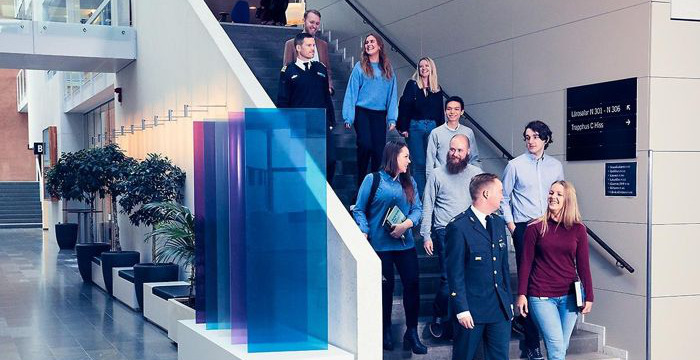
Innovation, Defence and Security — two-year master's programme
This programme is unique in Europe. It was developed as a response to a demand for a partially new profession that supports communication between developers and users of systems in the defence and security industry. The programme focuses on analyzing complex problems and possibilities from a systems perspective.
If you are looking for an analytical and creative job where you create new, smart solutions, this might be the programme you are looking for. It focuses on development and innovation for a stronger defence and strengthened security.
The programme was developed in close collaboration with government agencies and companies in the defence and security sector and provides an understanding of how technical systems are integrated with people and organisations to work in complex threat environments. The employment rate for recent graduates is high.
Degree of Master of Science in Systems Science for Defence and Security
Systems Science for Defence and Security is an interdisciplinary field in the intersection between engineering science and social science. The field has a sociotechnical focus and studies how complex technical systems for defence and security are initiated and designed in an interplay between technology and people.
Innovation, Defence and Security is a two-year international programme that leads to a Degree of Master of Science in Systems Science for Defence and Security. All courses are taught in English.
Programme outline
The programme combines individual studies, lectures and seminars with exercises and the opportunities for internships. The first year focuses on a solid theoretical base in defence systems, scientific methods and systems development work.
During the second year, you will enjoy being able to choose your own specialisation in elective courses, either at the Swedish Defence University or the higher education institutions we collaborate with.
Application fee and scholarships
Students coming from a country outside the EU must pay an application fee of 900 Swedish kronor and a tuition fee of 123,500 Swedish kronor per year. However, students from outside the EU may also apply for scholarships to cover the cost of tuition.
Read more about the scholarships available at the Stockholm Defence University.
Selection of eligible candidates
Selection for the Master’s programme Innovation, Defence and Security is based on your motivation letter and Grade Point Average.
Application code
P2603
Program code
2IFS1
Type
Programme
Starting Term
Autumn Term 2026
Study period
2026-08-31 - 2028-06-04
Level
Second cycle
Scope
120.0 credits
Study pace
100%
Study mode
Campus
Location
Stockholm
Language of instruction
English
Entry requirements
The degree should be in either social sciences, engineering science, natural science or other relevant area or subject.
There are additional requirements for proficiency in Mathematics equivalent to Mathematics 3b or 3c, alternative Mathematics C, and English equivalent to English 6/English B.
Certain elective courses have specific entry requirements in order for the student to benefit from the education.
Application opens
2025-10-16
Application closes
2026-01-15
Admissions round
International Master's Programmes Autumn Semester 2026
Programme syllabus
Elective Courses
In the program there are several elective courses available. A selection is listed in the box "Examples of elective coursers"
Contact
If you have questions about the programme, contact by e-mail: masterprogramme@fhs.se
Discover the Swedish Defence University
Cybersecurity and sociotechnical systems
Astrid Hellström Ryckert has transitioned from a traditional systems scientist to viewing IT issues from a broad societal perspective. This path was paved through the master's programme in I...
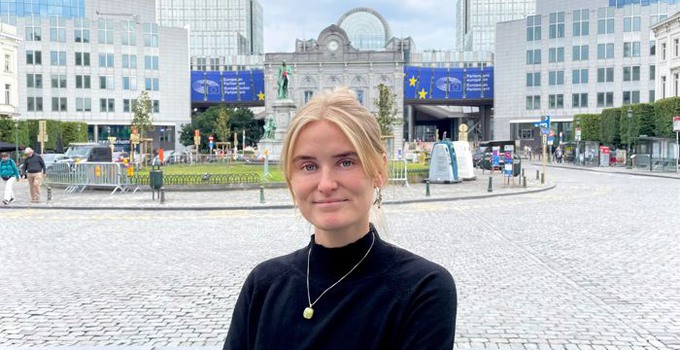
Employers are queuing up
Filip Brolin will soon meet a bright future. The master’s programme Innovation, Defence and Security is a collaboration between companies, government agencies and organisations within the de...
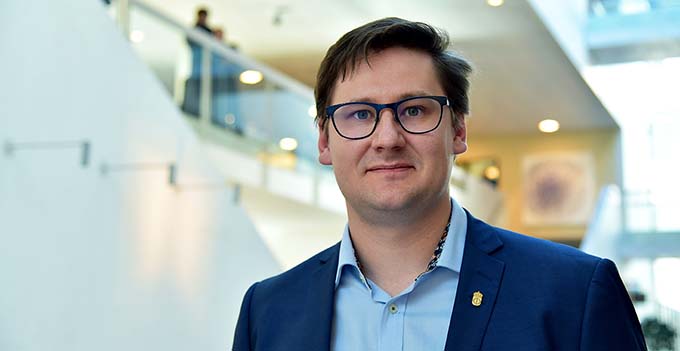
Satellites, complex systems and societal security
A microsatellite that discerns how we can prevent the earth from being struck by comets – that is an everyday task for Anton Lomaeus. He is the systems engineer from Stockholm’s Royal Instit...
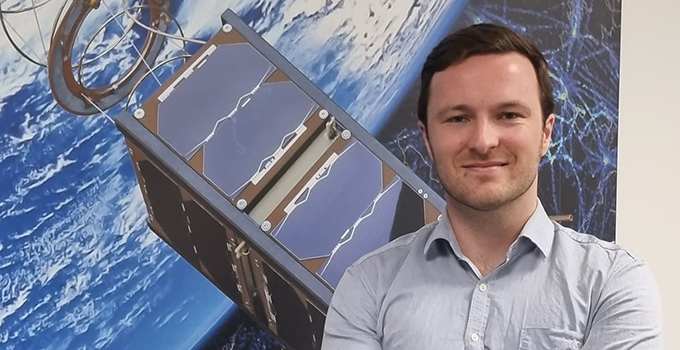
Internship at the Government Offices of Sweden
Hugo Hedén found the master’s programme Innovation, Defence and Security while seeking the interface between different knowledge areas and a way to be where the “circles meet.” His internshi...

With a civilian and military perspective
Marika Ericson is a professor in the programme Innovation, Defence and Security. Her focus is on cyber operations and technological warfare from a legislative perspective, an area that encom...
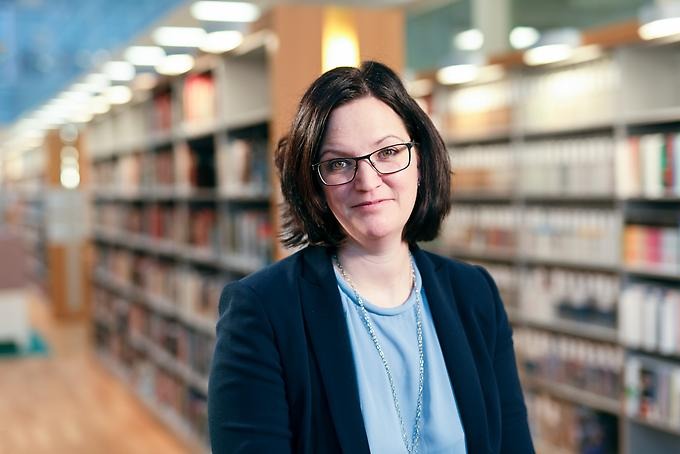
How to apply and entry requirements
Here we guide you through the application process, explain the entry requirements, admissions and other important things that you need to know when applying to our programmes and courses.

Education at the Swedish Defence University
Studies at Swedish Defence University - a both civil and military university - offers a completely different experience compared to most other universities.
